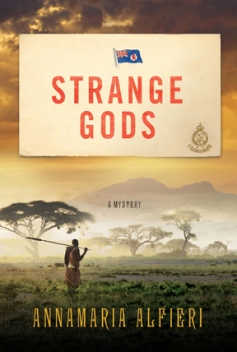WARNING: SPOILERS
Modern Sensibilities: One of the challenges of writing historical fiction is balancing the values of the reader with the worldview of characters from a distant time/place. The writer must provide the modern audience with someone to identify with even when the context is wholly other.
Colin Falconer’s Silk Road spans the swath of geography from the Holy Land to Central Asia in 1260 AD. Writing from this distance in time and culture presents a greater than usual challenge to bridge the gap between story context and the reader.
Falconer does this by creating a female character, Khutelun, with the skills, spunk and father’s indulgence to have the freedom to live as a man – allowing for adventures and encouraging her natural leadership. This is believable because we know that Mongol women did have more clout than their western sisters at the time.
Falconer also creates a main character, Josseran Sarrazini, a Templar knight, who begins to question his Christian heritage. And, William, a Dominican friar, who represents every despicable characteristic of religious fanatics. This juxtaposition of an open-minded man who finally casts off all faith and the Evil EthnocentricCleric who never changes, seems crafted to appeal to the modern reader’s freedom of thought and to encourage the gleeful derision of all things terrible about organized religion.
I have two problems:
1) The drastic final action of the Templar doesn’t ring true. Of course, as a believer, I would say this. But I also assert so as an intelligent reader. In 1260 AD, the act of completely turning one’s back on faith, and doing what he finally does, would have been terrifying. (And I won’t even tell you what he finally does as it would be an extreme spoiler.)
Of course, it is the writer’s freedom to do as he wishes, but it felt like a wink at the politically correct modern world.
2) Meanwhile, William, the Despicable Cleric, never learns, never grows. I admit there were moments when Falconer tried hard to humanize him; make us think William might improve, if only a little. Was that an attempt to forestall criticism of caricature? Or provide an honest picture of personal enigma? In the end, this character goes nowhere.
Again, it’s the writer’s freedom to do as he wishes, but it was tiresome. Okay, we get it – Evil Monk. Been Done To Death.
More Nit-Picking:
The book is slow at times if you want all action. But if you are reading Silk Road because of an interest in the region, you’ll enjoy the descriptions even if you find yourself skimming through some of it as I did.
And, the editing is appalling. How did this happen?
On the Other Hand:
Despite my complaints, Colin Falconer has a new fan. He is a wonderful storyteller and I will definitely read more of his work. I crave well researched high adventure stories in places beyond the standard fare. This is the kind of book I love. This is the kind of book I want to write. I will forgive all for more of this. Falconer sweeps you along on roads far beyond the beaten path and immerses you into another world.
The good news is: Colin Falconer has written 40+ books. I will look for others set in times/places that appeal to me. Lot’s to choose from. It will be interesting to compare the story and editing qualities of subsequent reads with my Silk Road experience.
In the meantime, I hope Mr. Falconer will slow down enough to do some serious quality control on the editing. Maybe his production schedule is coming at too great a sacrifice.
Recommended: For action & adventure set in far off lands
Amazon reviews here.
Goodreads Reviews here.
Why I don’t write starred reviews here.



